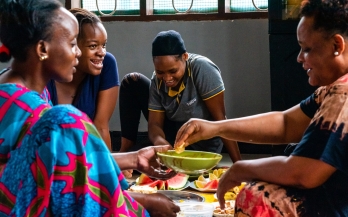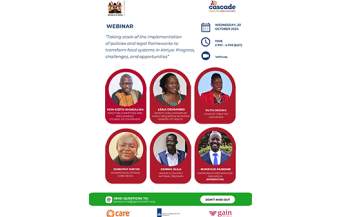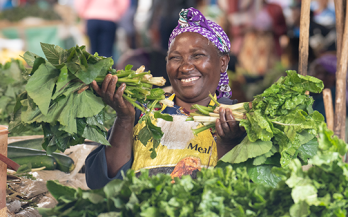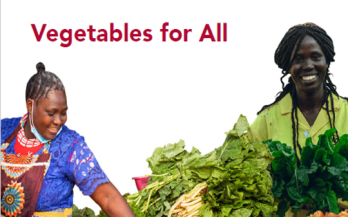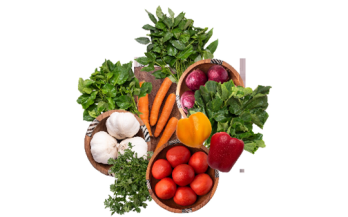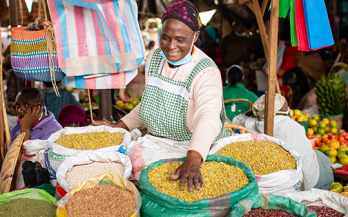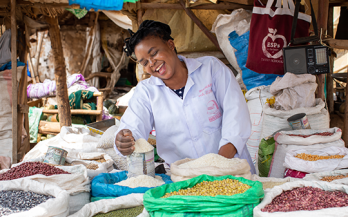GAIN saw an opportunity to establish a workforce nutrition programme designed and implemented for both tea farmers and employed labourers of tea farms in four tea factories in Kericho County, Kenya. The programme was implemented between January 2020 and December 2022 in collaboration with the Ethical Tea Partnership, and aimed to reached 26,000 workers.
Vegetables for All is a Dutch Government-funded five-year project aimed at improving dietary diversity for 1.1 million urban and peri-urban Bottom of the Pyramid (BoP) consumers by increasing vegetable consumption in alignment with global guidelines. The project is being implemented across five counties: Nairobi, Kiambu, Machakos, Nakuru, and Mombasa, and it specifically targets families with children aged 3-12 in the lower-income group, Living Standard Measure (LSM) 3-7, who earn between USD 1.9 and 3.2 per day.
Poor diets are the leading cause of global ill health, resulting in malnutrition and deficiencies such as anaemia, decreased energy levels, diminished health, and decreased productivity. A diverse diet containing a wide variety of food types is more likely to provide the vitamins and minerals needed for good health, to boost brain and body development, and bolster resistance to infections. However, in 2021, more than 3.1 billion people in the world—or 42 percent of the global population—were unable to afford a healthy diet. Tea workers and farmers, predominantly women, often contend with high rates of malnutrition due to diets lacking essential nutrients. Healthy Diets for Tea Communities is a public-private collaboration between the Global Alliance for Improved Nutrition (GAIN), the Ethical Tea Partnership (ETP), and eight leading tea companies, which aims to promote healthy diets in tea supply chains in India, Malawi, and Kenya. This document summarises programme results in Kenya.
GAIN, along with the Kenya Tea Development Agency Foundation (KTDA Foundation) coordinated and implemented a training package for the vegetable kiosk vendors within the community. It was targeted at food vendors and small traders around tea factories and other stakeholders around their business sites.
All around the world, countries have recognised their food systems need to change, for the health of people and planet. From a national political perspective, this transformative journey hinges on robust government policy frameworks. Government can and must lead in changing the landscape to banish malnutrition and boost healthy diets. The Kenyan government’s ongoing review of the National Food and Nutrition Security Policy exemplifies its commitment to doing just that.
GAIN Kenya has been working towards improving the nutrition and health status of Kenyans with support from donors, government, the private sector and other stakeholders. These efforts have culminated in increased policy influence in counties, development of the Food Fortification Strategic Plan 2018-2022 and the establishment of Food Safety Coordination Committee in Counties.
As countries develop their National Pathways for food systems transformation, one emerging need is to
ensure policies land at different levels. A truly effective ‘national’ policy must span all sub-national areas.
